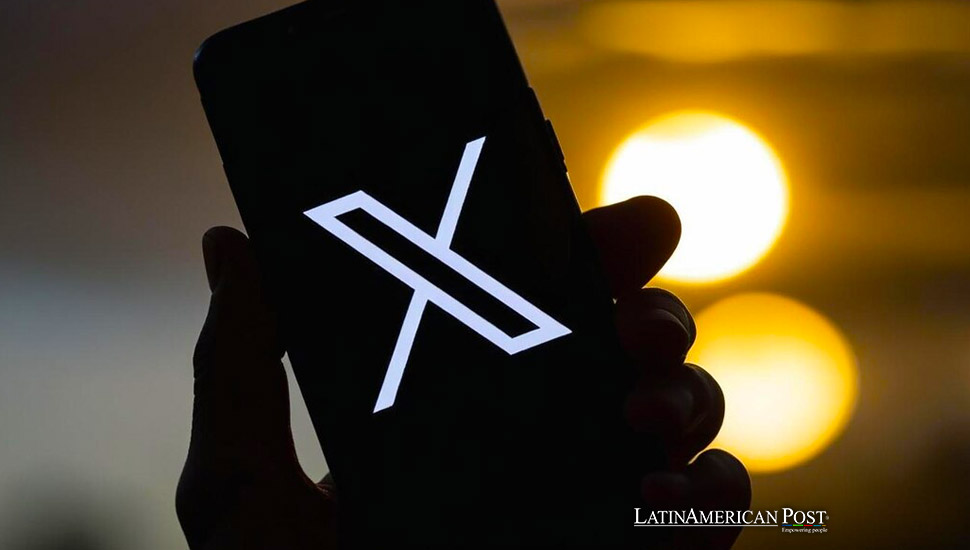Social Media Giant X Closes Operations in Brazil Over Censorship Dispute

In a dramatic move, the social media platform X, formerly known as Twitter, announced the immediate closure of its operations in Brazil, citing “censorship orders” from Supreme Court Justice Alexandre de Moraes. Despite this, the platform remains accessible to users in the country, according to X’s owner, Elon Musk.
In a bold declaration, X, the platform formerly known as Twitter, announced the immediate shutdown of its operations in Brazil. The decision was sparked by what the company described as “censorship orders” from Supreme Court Justice Alexandre de Moraes. Elon Musk, the billionaire owner of X, confirmed that the platform would continue to be available to the Brazilian public but would cease its business operations there.
X’s statement pointedly critiqued Justice Alexandre de Moraes, who has been at the center of several high-profile legal battles involving the platform. According to X, De Moraes’s actions are “incompatible with a democratic government.” The company cited a recent judicial order from the judge, which once again demanded the removal of certain profiles from the platform. Since April, X has defied this order, escalating tensions between the tech giant and the Brazilian judiciary.
A Difficult Decision Amid Censorship Allegations
According to X, the platform’s decision to close its office in Brazil was not taken lightly. The platform’s leadership emphasized navigating legal orders they believed to be secretive and illegal. In a personal post, Elon Musk expressed that capitulating to such demands would leave the company unable to justify its actions without shame. Musk’s post reflected the ongoing struggle between his vision of free speech and the legal constraints imposed by governments worldwide.
Elon Musk has long positioned himself as a defender of free expression, often using X as his platform to critique governmental overreach. However, this stance has put him and his company at odds with Brazilian authorities, who have repeatedly demanded the removal of content they deem harmful. The conflict reached a boiling point when Justice Alexandre de Moraes issued a judicial order threatening the arrest of X’s legal representative in Brazil if the platform did not comply with the demand to remove specific content.
This standoff symbolizes the broader challenges that tech companies face in balancing their operations in countries with differing legal and political landscapes. While X’s closure of its Brazilian office signals a strong stance against censorship, it also raises questions about the platform’s ability to operate in markets where legal compliance conflicts with its core principles.
Legal Battles and Accusations of Bias
The legal battle between X and the Brazilian judiciary is not new. In April, a Brazilian court announced an investigation into Elon Musk for obstruction of justice after the entrepreneur reactivated accounts belonging to far-right figures that the Brazilian government had ordered to be suspended. At the time, Musk openly challenged Justice Alexandre de Moraes, calling for his resignation or removal from office, arguing that the judge’s orders violated Brazil’s constitution.
The tension between X and the Brazilian government intensified as the court pressured them to remove specific profiles from the platform. Although the court did not disclose the complete list of accounts it sought to block, Brazilian media reported that it included controversial figures such as Allan dos Santos, a far-right influencer and supporter of former right-wing president Jair Bolsonaro, and Bruno Aiub, known as Monark, a YouTuber with over a million followers on X who has advocated for the recognition of the Nazi party in Brazil. Another notable figure on the list was Luciano Hang, a billionaire and Bolsonaro sympathizer.
The involvement of these high-profile figures highlights the complex interplay between politics, social media, and the judiciary in Brazil. Justice Alexandre de Moraes has been a central figure in several investigations about the spreading of false information in the country. As head of the Supreme Electoral Court during the 2022 elections, he ordered the removal of hundreds of posts on X that questioned the integrity of Brazil’s electoral system. He is also leading an ongoing investigation into former President Jair Bolsonaro.
A Platform for Musk’s Political Ambitions
Elon Musk’s transformation of X into a platform for his political views has sparked controversy. While he has accused the former management of Twitter of political bias, critics argue that Musk is now using X to push his political agenda. This shift has implications for the platform’s operations in Brazil and its global user base.
Musk’s decision to close X’s office in Brazil can be seen as a strategic move to assert his control over the platform and resist what he perceives as governmental overreach. However, it also raises questions about X’s future in Brazil and other countries where legal demands may conflict with Musk’s vision for the platform.
The situation in Brazil is a microcosm of X’s broader challenges as it navigates the complex legal and political landscapes of different countries. The platform’s stance against censorship has won it support from free speech advocates, but it has also brought it into direct conflict with governments that seek to regulate social media content.
As the battle between X and the Brazilian judiciary continues, the outcome could have significant implications for the future of social media in Brazil and beyond. For now, X remains accessible to users in Brazil, but the closure of its office in the country marks a significant turning point in the platform’s operations. The decision underscores the difficulties that tech companies face balancing their commitment to free expression with the legal and political realities of operating in diverse markets.
Also read: Sotol Surpasses Tequila as the New Mexican Spirit Sensation
The closure of X’s office in Brazil is a bold statement by Elon Musk and his team, reflecting their commitment to resisting what they view as unjust censorship. However, it also raises questions about the platform’s long-term viability in Brazil and other countries where similar conflicts may arise. As the situation unfolds, the world will watch how this high-stakes battle between a tech giant and a national judiciary plays out.





